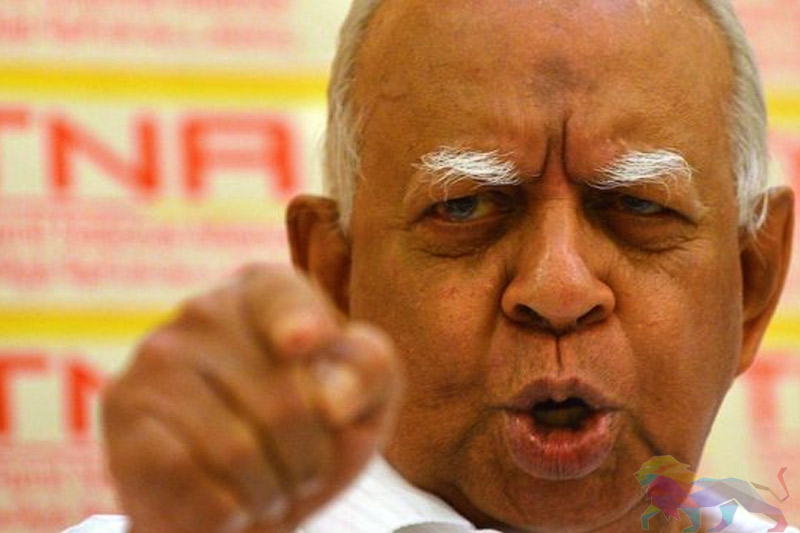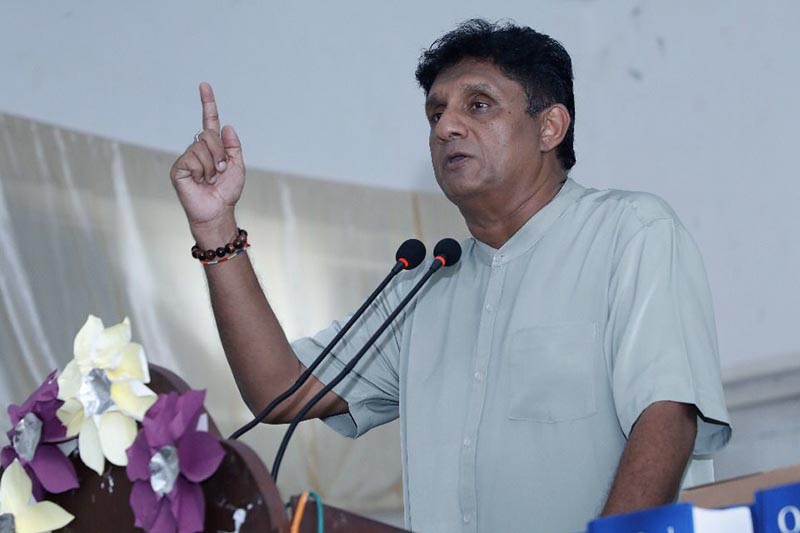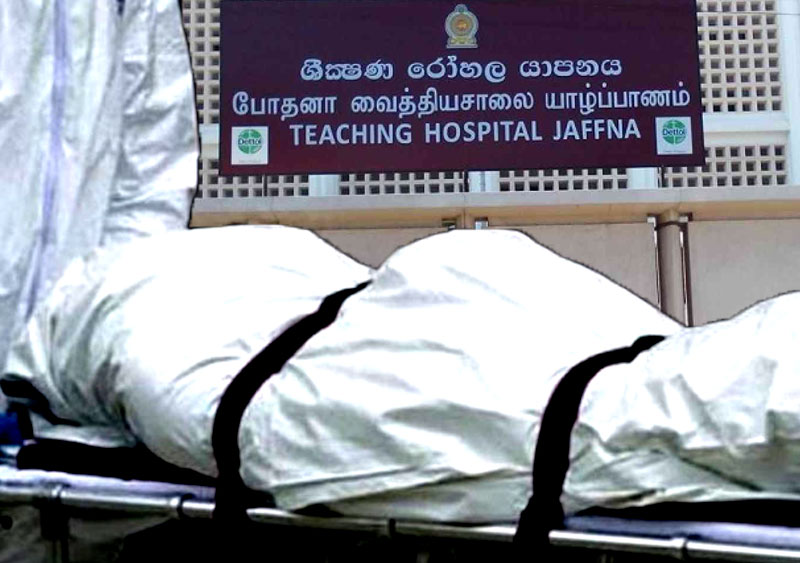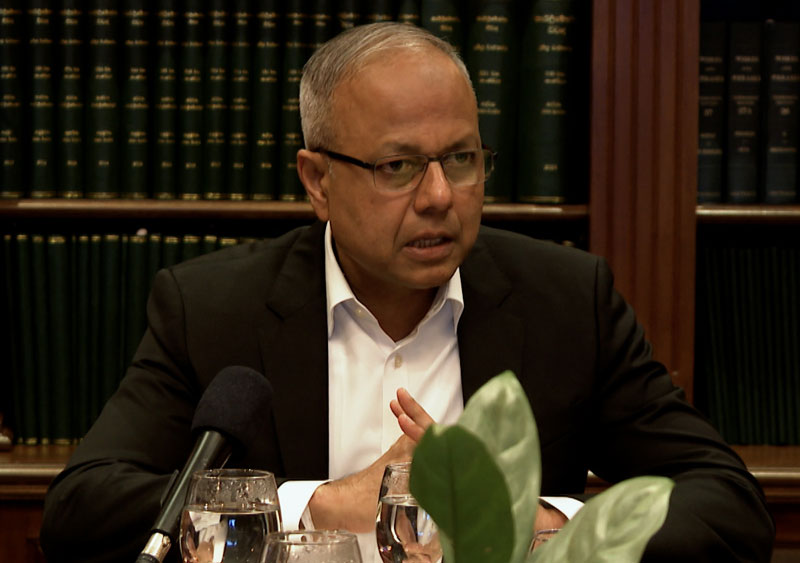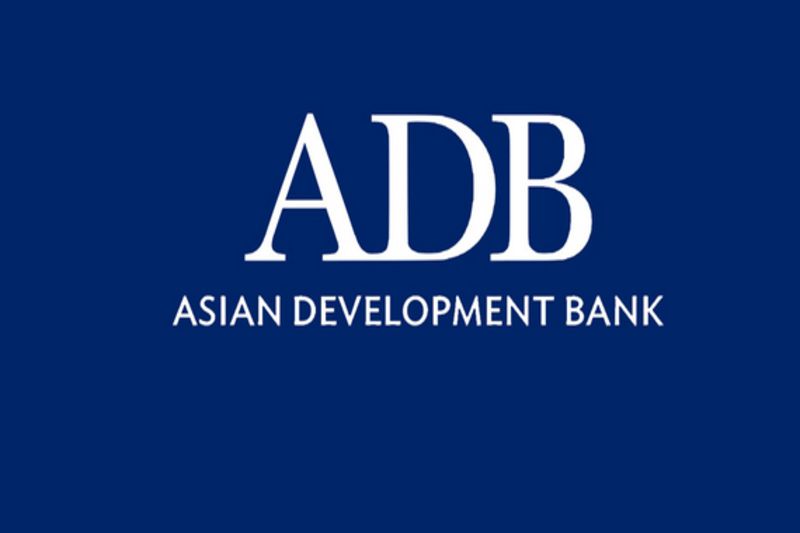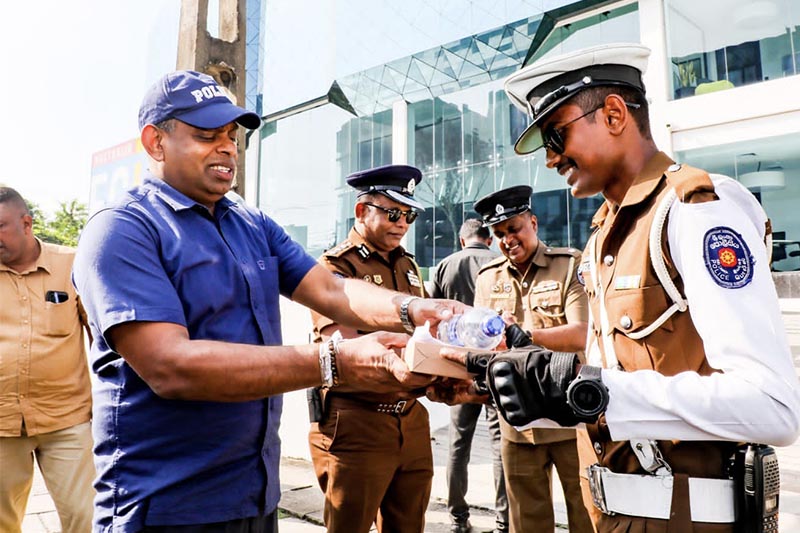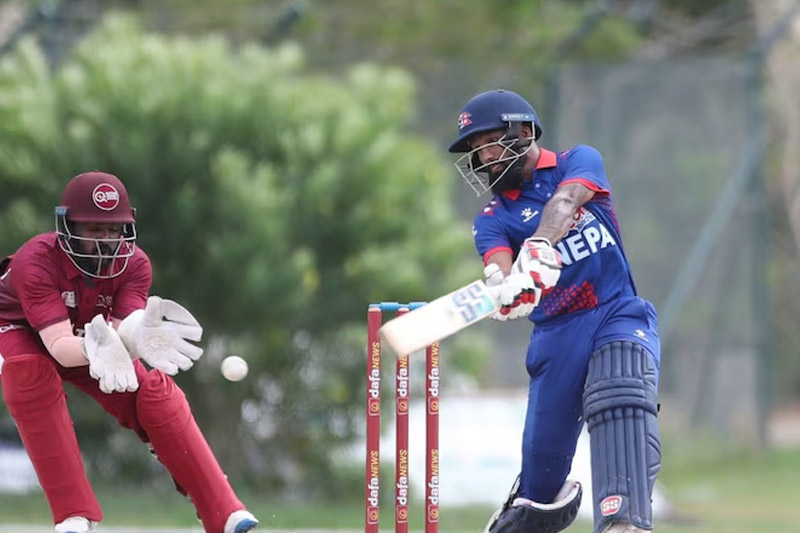The Tamil National Alliance (TNA) has called for the replacement of the existing Constitution with a new that ensures the rights of all communities in the country and receives the consensus of every one stating that failure to do so would result in a rejection of the people’s mandate received by the President and government in 2015.
TNA Leader, R. Sampanthan has moved an adjournment motion for a debate in parliament on the formulation of a new Constitution.
The adjournment motion has noted that “the continuance in force of the current Constitution enacted in 1978, and the failure to adopt a new Constitution is tantamount to an arbitrary rejection of the massive mandate granted by the people at the last democratic election in 2015 to frame a new Constitution and is also tantamount to nullifying a unanimous resolution adopted by Parliament in 1916 ,to frame a new Constitution and is also tantamount to the continued unjust imposition of the 2nd Republican 1978 Constitution on the people without their will and consent.”
The motion further states, “If a new Constitution with a substantial measure of national consensus is not formulated and if consequently the Country is compelled to be governed under a Constitution which has been rejected by the people and also unanimously by the present Parliament, Sri Lanka could before long qualify itself to be termed a failed state and I submit it is the duty of this Parliament to take every step to avoid such a calamity.”
Following is the text of the letter sent by Sampanthan to the Speaker:
“I seek your leave to move the following motion of urgent public importance on the adjournment of Parliament on 25th July 2019.
Whereas the Constitution of a Country is the Supreme law of the Country.
And whereas in Democracies the world over, a country is governed on the basis of a Constitution framed on the maximum possible national consensus.
And whereas Sri Lanka which is a multi ethnic, multilingual, multicultural Country with a diverse and pluralist society is not governed on the basis of a Constitution framed on the maximum possible national consensus.
And whereas Sri Lanka has thus far been governed on the basis of three (3) different Constitutions: -
(i) The 1947 Soulbury Constitution framed by the Colonial British Government without the consensus of people of Sri Lanka.
(ii) The 1972 1st Republican Constitution, framed by the Sri Lanka Freedom Party – the Government in power –which was able to muster a 2/3rd majority in Parliament without arriving at any Consensus with the main opposition party the United National Party or the party representing the Tamils of the North and East –the Federal Party
(iii) The 1978 2nd Republican Constitution framed by the United National party Government in power which was able to muster a 2/3rd ,majority in Parliament without arriving at any Consensus with the main opposition party the Sri Lanka Freedom Party or the main Tamil Party representing the Tamils of the North and East the Tamil United Liberation Front.
And whereas the Tamil people of the North and the East, are a people with a heritage and civilization of their own and a distinct linguistic and Cultural identity and have historically predominantly inhabited the Northern and Eastern Provinces
And whereas Sri Lanka has thus been governed since Independence in 1947 under Constitutions which did not enjoy the maximum possible national consensus of the diverse and pluralist people of Sri Lanka
And whereas the situation of conflict that has prevailed in Sri Lanka from independence in 1947 including an armed conflict that lasted for 25-30 years is attributable to the absence of a Constitution based on such maximum possible national consensus to suit the needs of a diverse and pluralist society.
And whereas Sri Lanka with a diverse and pluralist society ,in the past 70 years has failed to evolve a Sri Lankan identity as a Sri Lankan nation within a united and undivided Sri Lanka.
And whereas ever since the enactment of the 2nd Republican Constitution in 1978 and in force until the present time, there has been a strong and consistent demand for the repeal of the said 1978 2ndRepublican Constitution and the enactment of a new Constitution,
And whereas several commitments made to the people of the Country at several elections by political parties and political Leaders for the repeal of the 2nd Republican Constitution of 1978 and for the enactment of a new Constitution have not been honoured and thereby the mandates granted by the people at the said elections for the repeal of the 2nd Republican Constitution of 1978 and the enactment of a new Constitution have been disregarded and violated.
And whereas consequently the 1978 2nd Republican Constitution rejected by the people through several democratic verdicts has been in operation as the Supreme Law of the Country up to the present time in violation of the will and without the consent of the people.
And whereas at the Elections held in 2015, a Mandate was sought and received by the winning candidate for the enactment of a new Constitution.
And whereas at the said elections in 2015 the main opposition candidate himself sought a mandate to frame a new constitution
And whereas more than 90% of the electorate voted for the framing of a new Constitution.
And whereas on the basis of the said mandates received at the said elections in 2015, a resolution was adopted in Parliament unanimously on 9th March 2015 which inter –alia stated as follows,
(a) WHEREAS there is broad agreement among the People of Sri Lanka that it is necessary to enact a new Constitution for Sri Lanka.
(b) AND WHEREAS the People have at the Presidential Election held on 08th January 2015 given a clear mandate for establishing a political culture that respects the Rule of law and strengthens democracy.
(c) AND WHEREAS His Excellency Maithripala Sirisena, President of the Democratic Socialist Republic of Sri Lanka has clearly expressed his desire to give effect to the will of the people expressed at the aforesaid Presidential Election by enacting a new Constitution inter alia, abolishing the executive Presidency.
(d) AND WHEREAS it has become necessary to enact a new Constitution that inter alia ,abolishes the executive Presidency ,ensures a fair and representative electoral System which eliminates preferential voting, strengthens the democratic rights of all citizens, provides a Constitutional Resolution of the national issue, promotes national reconciliation, establishes a political culture that respects the rule of Law, guarantees to the People’s fundamental rights and freedom that assure human dignity and promotes responsible and accountable government.
And whereas in terms of the said resolution of 9th March 2015 - a committee of the whole Parliament constituted itself into a Constitutional Assembly, a Steering committee and Sub committees were appointed to partake in the framing of a new Constitution which committees after public consultation and deliberation have submitted reports to the Constitutional Assembly which have been debated in the Constitutional Assembly
And whereas in the past several months – the constitution making process has for some unknown reason been at a standstill –with no signs of any movement-
And whereas the continuance in force of the current Constitution enacted in 1978,and the failure to adopt a new Constitution is tantamount to an arbitrary rejection of the massive mandate granted by the people at the last democratic election in 2015 to frame a new Constitution and is also tantamount to nullifying a unanimous resolution adopted by Parliament in 1916 ,to frame a new Constitution and is also tantamount to the continued unjust imposition of the 2nd Republican 1978 Constitution on the people without their will and consent.
And whereas such a course of events would be immensely harmful to the future interests of the whole country and all it’s people.
And whereas it has therefore become necessary to debate this issue in Parliament and ensure that appropriate decisions are made to take forward the constitutional making process and thereby evolve a Constitution based on
substantial national consensus.
If a new Constitution with a substantial measure of national consensus is not formulated and if consequently the Country is compelled to be governed under a Constitution which has been rejected by the people and also unanimously by the present Parliament, Sri Lanka could before long qualify itself to be termed a failed state and I submit it is the duty of this Parliament to take every step to avoid such a calamity.
R.Sampanthan
Member of Parliament
Parliamentary Group Leader
Illankai Thamil Arasu Kadchi (ITAK)

